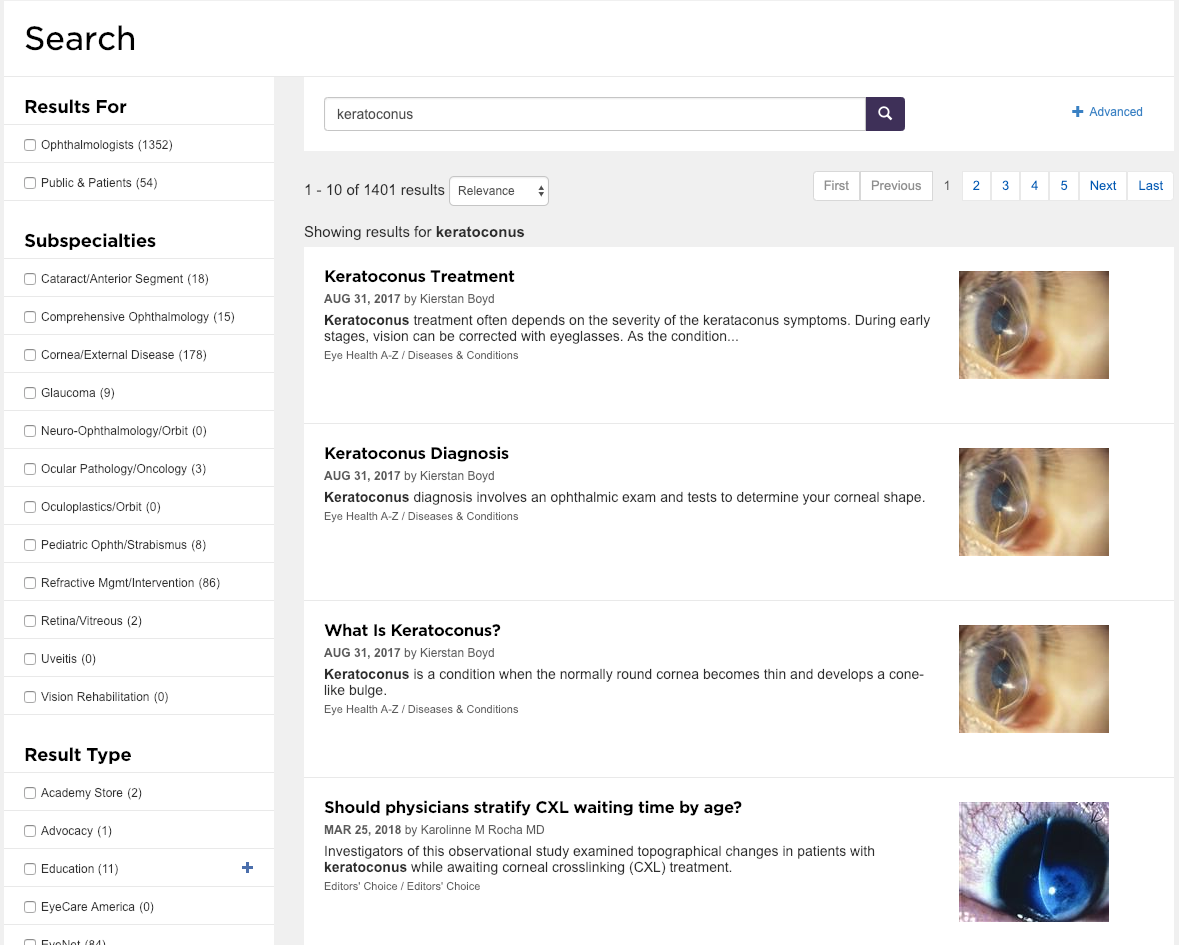How Enforme Interactive Replaced Google Search Appliance With a Better, Faster Search App in Just Two Months
Enforme Interactive empowers non-profit medical and scientific organizations to reach strategic business goals through the use of progressive technology. The…
Enforme Interactive empowers non-profit medical and scientific organizations to reach strategic business goals through the use of progressive technology. The company creates software that helps manage content, learning, and membership services for medical professional associations like the American Academy of Ophthalmology and the American Physical Therapy Association. Using Enforme’s software, association members can keep up-to-date on what’s happening in their field with trainings, new case studies, and content that answers questions they have about symptoms, diagnoses, and procedures.
Fusion Versus DIY Apache Solr
For many years, Enforme used Google Search Appliance (GSA) and then later Google’s Custom Search Engine (CSE) to power search features, but when CSE began to require showing ads alongside search results, Enforme’s customers demanded a change. The team at Enforme was given a two-month deadline to switch its search tool. Tim DeFoggi, CTO, had worked with the popular search technology Apache Solr in the past and knew it was powerful, but with two months to complete the project, the amount of time it would take to develop a sufficient Solr app would push them well past the deadline. Enforme needed a development framework to make Solr development faster and easier. Enforme did some online research and came across Lucidworks Fusion.
DeFoggi knew that Lucidworks were contributors to the Apache Solr project, but he had never looked into the Fusion platform. Along with Fusion, Enforme researched a few other search products, but found that many were attempting to be direct GSA competitors and would still have a black box approach for relevance with no ability to fine-tune or tweak results. Enforme had been in that situation before and didn’t want a repeat. Fusion offered more flexibility, and if Enforme ever wanted to move off Fusion, the Solr index would still be there for use.
With the deadline looming, Enforme jumped into implementing Fusion. In less than two months, Enforme was up and running, and when the cut over from Google to Lucidworks Fusion occurred, Enforme customers noticed, remarking, above all, on how fast the search tool was. “They were blown away by how fast it was,” DeFoggi says.

Search Engages Customers
After seeing the possibilities Fusion can offer, Enforme’s customers have become more engaged and interested in search, wanting to continuously fine-tune their results. When DeFoggi attended Activate, the annual search and AI conference produced by Lucidworks, the American Academy of Ophthalmology sent with him a list of questions about how to get the most out of Fusion.
With the legacy Google deployment, facets were hard-coded. Wanting to duplicate that search experience when Fusion was initially deployed, the Enforme team hand-tagged everything. But as confidence in Fusion continues to grow, Enforme is relying more and more on Fusion’s auto-faceting. Fusion helps tagging to train and improve document classification, and different pipelines make it easy. When associations come to them with a new tuning request, they can say with confidence, “Give me two hours, we’ll have that done and we’ll be able to test.”
What’s Next?
Where will Enforme apply Fusion as they move deeper into its tools and capabilities? Ultimately, they want query results to continue to get more personalized and to provide the most relevant data back to users. By authenticating each association’s members, they’ll be able to provide even more customized query results and, for training support, will be able to look at courses each member has taken and provide reading suggestions to help them improve on future tests in areas of weakness. With Fusion’s analytics capabilities, Enforme is planning to provide analytics back to its organizations as well, offering actionable insights such as “your members aren’t doing well on these tests” so organizations know where to implement additional training modules and where resources might be deficient.
Looking back on the amount of time it would have taken to implement DIY Solr instead of Fusion, DeFoggi insists, “I don’t even want to think about that. We would have spent so much more money and time developing it ourselves, and we got so much more ‘for free.’ Signals, pipeline processing, different collections, all would have created a lot more work. With Fusion pipelines, it’s simple and easy to do.”
Learn More
- Learn how you can replace GSA with Fusion
- Hear from more Fusion customers
- Contact us for help!